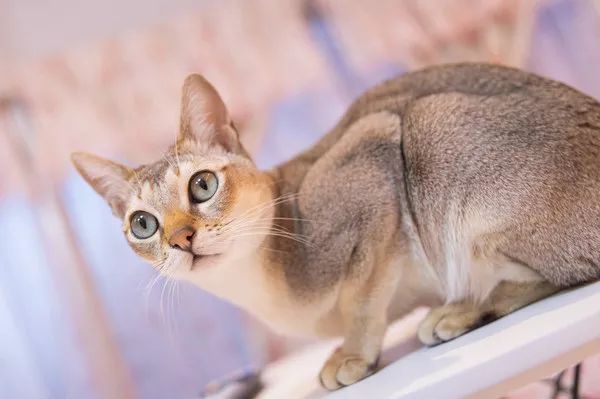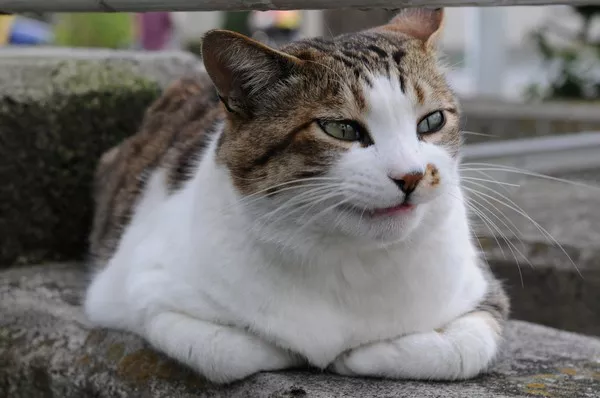Maintaining a healthy weight is crucial for the overall well-being of our feline companions. Obesity in cats is a growing concern, with studies indicating that nearly 60% of cats in the United States are overweight or obese. This condition can lead to numerous health issues, including diabetes, joint problems, and heart disease, significantly impacting a cat‘s quality of life and longevity. As responsible cat owners, it is essential to understand the role of diet in managing weight and to choose the best cat food that supports a healthy weight. This essay will explore the importance of maintaining a healthy weight in cats, the factors contributing to obesity, key nutritional components for weight management, and the best cat food options available for promoting a healthy weight.
Understanding Feline Obesity
The Importance of Maintaining a Healthy Weight
A healthy weight is vital for a cat’s overall health and longevity. Maintaining an optimal weight helps prevent various health problems, including:
Diabetes Mellitus: Obesity is a significant risk factor for diabetes in cats. Excess body fat can lead to insulin resistance, making it difficult for the body to regulate blood sugar levels.
Joint Problems: Extra weight puts additional stress on a cat’s joints, leading to arthritis and mobility issues. Maintaining a healthy weight can help preserve joint health and mobility.
Heart Disease: Obesity can strain the heart and lead to cardiovascular problems, increasing the risk of heart disease over time.
Respiratory Issues: Overweight cats may experience difficulty breathing, especially when exerting themselves. This can affect their overall activity levels and quality of life.
Reduced Lifespan: Studies have shown that overweight cats tend to have shorter lifespans compared to their leaner counterparts. Maintaining a healthy weight can contribute to a longer, healthier life.
Causes of Obesity in Cats
Understanding the factors that contribute to obesity is crucial for preventing and managing weight issues in cats. Some common causes include:
Overfeeding: Providing too much food or high-calorie treats can lead to weight gain. Many cat owners may not realize how much food their cats need, leading to overfeeding.
Lack of Exercise: Cats are naturally playful and active creatures, but many indoor cats do not get enough exercise. A sedentary lifestyle can contribute to weight gain.
Poor Diet Choices: Feeding cats low-quality, high-calorie foods can lead to obesity. It’s essential to choose cat food that is nutritionally balanced and appropriate for their life stage and activity level.
Genetics: Some cats may be genetically predisposed to obesity. Certain breeds, such as the British Shorthair and the Ragdoll, are more prone to weight gain.
Age: As cats age, their metabolism may slow down, and they may become less active. Older cats often require fewer calories, making it essential to adjust their diet accordingly.
Medical Conditions: Certain medical conditions, such as hypothyroidism or Cushing’s disease, can contribute to weight gain. If a cat is gaining weight despite a controlled diet and exercise, it is essential to consult a veterinarian.
Nutritional Considerations for Weight Management
When selecting cat food for weight management, it is crucial to focus on the nutritional composition of the food. Here are some key components to consider:
High-Quality Protein
Protein is essential for maintaining lean muscle mass, especially during weight loss. High-quality protein sources help cats feel full and satisfied, reducing the likelihood of overeating. Look for cat foods that list animal-based proteins, such as chicken, turkey, or fish, as the primary ingredient.
Moderate Fat Content
While fats are an essential part of a cat’s diet, it is crucial to choose foods with moderate fat content when managing weight. Healthy fats, such as omega-3 and omega-6 fatty acids, are beneficial, but excessive fat can contribute to weight gain. Look for foods with a fat content of around 8-15%.
High Fiber Content
Fiber is an important component of a weight management diet. High-fiber foods help cats feel full and satisfied while providing fewer calories. Fiber also supports digestive health. Look for cat foods that include ingredients like beet pulp, pumpkin, or other fiber sources.
Low-Calorie Ingredients
Choosing cat foods with low-calorie ingredients can help reduce overall caloric intake. Ingredients that are lower in calories but still provide essential nutrients can help cats lose weight without sacrificing their health.
Controlled Portion Sizes
Regardless of the type of food, controlling portion sizes is crucial for managing a cat’s weight. Follow feeding guidelines provided by the manufacturer and consult with a veterinarian to determine the appropriate portion size for your cat.
Avoiding Fillers
Many commercial cat foods contain fillers, such as corn, wheat, and soy, which provide little nutritional value. These ingredients can contribute to obesity without providing essential nutrients. Opt for grain-free or low-carb options that focus on high-quality ingredients.
Choosing the Best Cat Food for Healthy Weight
When selecting cat food for weight management, it is essential to consider several factors. Here are some tips for choosing the best cat food for healthy weight:
Look for Weight Management Formulas
Many pet food manufacturers offer specific weight management formulas designed to help cats lose or maintain weight. These formulas typically contain higher fiber content, lower fat, and controlled calorie levels. Look for products labeled as “light,” “weight control,” or “weight management.”
Read the Ingredient List
Check the ingredient list for high-quality protein sources and avoid foods with excessive fillers. The first ingredient should ideally be a named meat source, such as chicken or fish.
Check the Nutritional Information
Review the guaranteed analysis on the packaging to understand the food’s protein, fat, and fiber content. Aim for foods with high protein (30-40%), moderate fat (8-15%), and high fiber (around 5% or more).
Consider Life Stage and Activity Level
Choose cat food that is appropriate for your cat’s life stage (kitten, adult, senior) and activity level. Active cats may require more calories, while sedentary or older cats may need a lower-calorie diet.
Consult Your Veterinarian
If your cat is overweight or you are unsure about the best food for weight management, consult your veterinarian. They can provide personalized recommendations based on your cat’s health status, age, and dietary needs.
Recommended Cat Foods for Healthy Weight
Here are some cat food brands and products that are well-regarded for promoting a healthy weight in cats:
Hill’s Science Diet Adult Perfect Weight
Hill’s Science Diet is known for its high-quality ingredients and veterinary recommendations. The Adult Perfect Weight formula is designed for weight management and contains high-quality protein to help maintain lean muscle mass. It is also enriched with fiber to promote satiety.
Royal Canin Feline Health Nutrition Weight Care
Royal Canin’s Weight Care formula is specifically designed for overweight cats. It features a balanced blend of nutrients, including high-quality protein and fiber, to support weight loss while ensuring cats feel full and satisfied.
Blue Buffalo Wilderness Healthy Weight
Blue Buffalo’s Wilderness line offers a grain-free, high-protein diet. The Healthy Weight formula is designed to help cats maintain a healthy weight while providing essential nutrients and antioxidants. It includes real meat as the first ingredient and is lower in calories.
Wellness CORE Grain-Free Reduced Fat
Wellness CORE’s Reduced Fat formula is rich in protein and designed for weight management. It contains high-quality protein sources and added fiber to promote fullness while being lower in fat and calories.
Nutro Weight Management
Nutro’s Weight Management formula is made with real chicken as the first ingredient and is designed to support a healthy weight. It includes a blend of whole grains, fruits, and vegetables, providing balanced nutrition while being lower in calories.
Purina Pro Plan Focus Weight Management
Purina Pro Plan’s Focus Weight Management formula is designed for overweight cats. It features high-quality protein and is formulated with a blend of fiber to help cats feel full and satisfied while promoting weight loss.
Merrick Purrfect Bistro Healthy Weight
Merrick’s Purrfect Bistro Healthy Weight formula is made with high-quality protein and includes added fiber to support weight management. It is grain-free and made with real meat as the first ingredient.
Orijen Cat & Kitten
Orijen is known for its biologically appropriate cat food that focuses on high-quality ingredients. The Cat & Kitten formula is rich in protein and includes a variety of fresh meats, making it a good choice for cats needing to maintain a healthy weight.
Transitioning Your Cat to a Weight Management Diet
If you decide to switch your cat to a weight management diet, it is essential to do so gradually to avoid digestive upset. Here are some steps to follow:
Gradual Transition
Start by mixing a small amount of the new food with your cat’s current food. Gradually increase the proportion of the new food over a week or two until your cat is fully transitioned.
Monitor Portion Sizes
Control portion sizes according to the feeding guidelines provided on the packaging. Measure your cat’s food to ensure they are receiving the correct amount.
Encourage Exercise
Incorporate playtime and exercise into your cat’s daily routine. Engage them with interactive toys, laser pointers, or feather wands to encourage physical activity.
Regular Weigh-Ins
Monitor your cat’s weight regularly. If you notice significant changes, consult your veterinarian for guidance on adjusting their diet or exercise routine.
Be Patient
Weight loss should be gradual. Aim for a weight loss of 1-2% of your cat’s body weight per week. Rapid weight loss can lead to health issues, so it’s essential to take a slow and steady approach.
Conclusion
In conclusion, maintaining a healthy weight is vital for the overall health and longevity of our feline companions. Obesity can lead to numerous health problems, including diabetes, joint issues, and heart disease. By understanding the nutritional components necessary for weight management and selecting high-quality cat food designed for healthy weight, cat owners can help their pets achieve and maintain an optimal weight.
Choosing the right cat food involves considering factors such as protein quality, fat content, fiber levels, and overall nutritional balance. Brands like Hill’s Science Diet, Royal Canin, Blue Buffalo, and Wellness offer excellent options for weight management. Additionally, transitioning to a new diet should be done gradually, and regular monitoring of weight and health is essential.
Ultimately, a proactive approach to nutrition and weight management can significantly enhance a cat’s quality of life, ensuring they remain active, healthy, and happy throughout their lives. By prioritizing our cats’ dietary needs and encouraging regular exercise, we can help them achieve a healthy weight and enjoy many years of companionship.
Related topic:



























